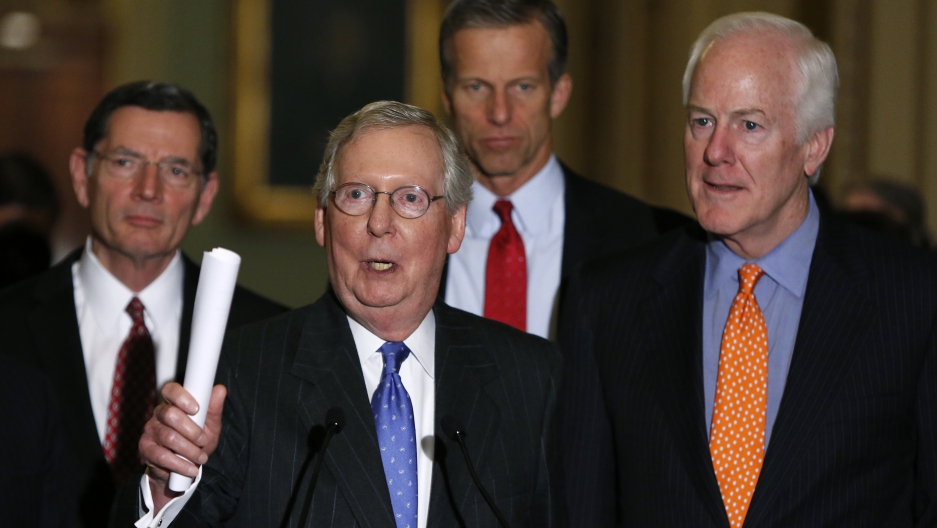A new report from Kaiser Family Foundation highlights that Big Pharma, GOP members of Congress and 2022 candidates, and outside groups pushing Pharma’s agenda have been misrepresenting the impact of President Biden and Congress’ Build Back Better plan giving Medicare the authority to lower prescription drug prices.
According to the Kaiser Family Foundation, it is “not accurate” to assert, as Big Pharma allies have falsely claimed, that the proposal would limit access to certain medications.
On the contrary, the authors note, giving Medicare the power to negotiate for lower drug prices, as proposed under the Build Back Better agenda, would actually “improve affordability and access to drugs for patients, leading to improved health,” while “lower[ing] cost sharing and premiums for Medicare beneficiaries and produc[ing] significant savings for the federal government.”
Kaiser Family Foundation: Drug Price Negotiation Doesn’t Mean the Government Will Restrict Access to Medicines
By Juliette Cubanski and Larry Levitt, 10/7/21
Key Points:
- “As the Congressional debate over budget reconciliation legislation intensifies, stakeholders are keeping a close eye on a proposal to allow the federal government to negotiate drug prices in Medicare, which is currently prohibited under federal law.”
- “The proposal under consideration […] would allow the government to negotiate prices with drug companies for a relatively small number of high-cost drugs, with an excise tax levied on drug companies that do not agree to participate in the negotiation process or comply with the negotiated price. This proposal would yield savings upwards of $450 billion, based on an earlier estimate from the Congressional Budget Office.”
- “The pharmaceutical industry’s latest ad campaign claims that drug price negotiation would ‘restrict access to medicines in Medicare’ by removing ‘a provision that protects access to medicines’ and that patients ‘would be stuck with whatever medicines the government says you can have.’”
- “Another drug industry ad says that allowing the government to negotiate drug prices means ‘politicians…[will] decide which medicines you can and can’t get.’”
- “This is not accurate. In fact, the proposed drug price negotiation program does not authorize the federal government to decide which medications people on Medicare can and cannot get and does not establish or require a particular prescription drug formulary.”
- “[T]he effect of lower prices on the number and type of new drugs that do and don’t come to market in the future is impossible to know with certainty […] CBO also notes that lower prices could potentially improve affordability and access to drugs for patients, leading to improved health.”
- “Allowing the federal government to negotiate drug prices, which is supported by a large majority of the public, would lower cost sharing and premiums for Medicare beneficiaries and produce significant savings for the federal government that could be used to cover the costs of other spending priorities, such as adding new Medicare dental, hearing, and vison benefits, filling the Medicaid “coverage gap”, and making permanent subsidy enhancements for people in Marketplace plans.”
- “[W]hile the pharmaceutical industry may want to frame the debate over drug price negotiation by focusing on the federal government limiting access to medications, this framing doesn’t accurately reflect what’s in the current legislative proposal.”
Read more here from Kaiser Family Foundation.
###
Published: Oct 7, 2021
